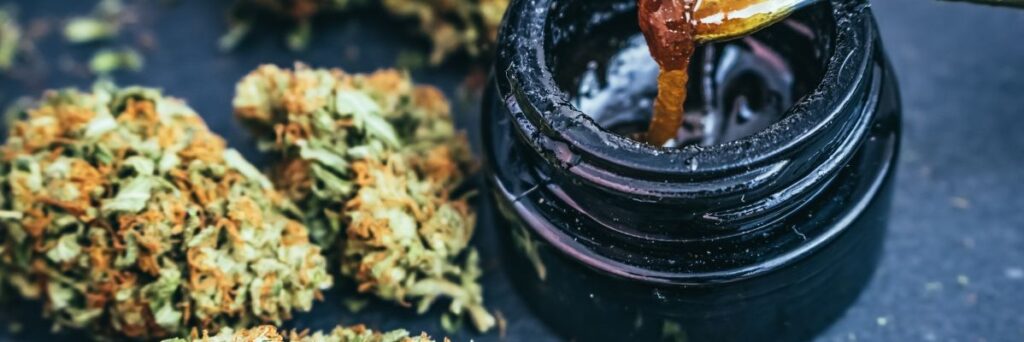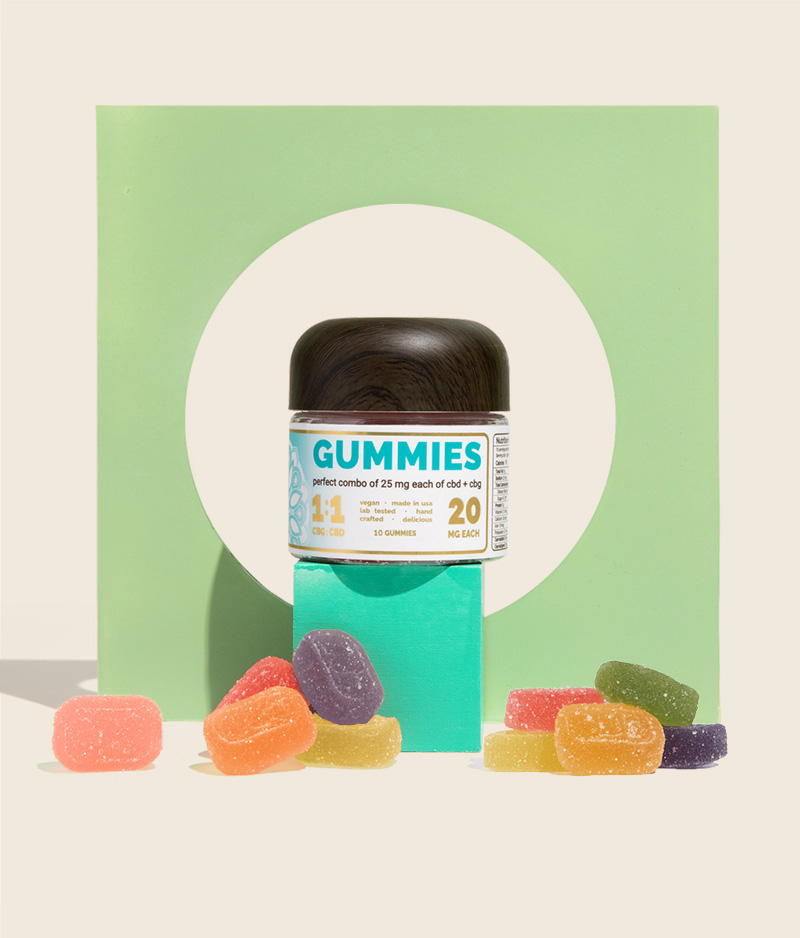STORE INFO
Location & Store Hoursmy cart
Secure checkout
Cannabinoids have captured widespread attention in both the medical community and the public, sparking interest and debate over their effects, uses, and legal status. The difference between synthetic cannabinoids and natural ones isn’t just important for healthcare providers and lawmakers, but for consumers as well.
While most people are familiar with natural cannabinoids such as THC (tetrahydrocannabinol) and CBD (cannabidiol), which are derived directly from the cannabis plant, there is another category known as synthetic cannabinoids–and an additional category, semi-synthetic.
This blog post demystifies the complexities of these compounds, highlighting their definitions, uses, and potential risks.
Cannabinoids are chemical compounds that interact with the cannabinoid receptors in the human body, forming part of the endocannabinoid system. This system regulates various physiological processes, including pain sensation, immune function, stress response, and sleep.
Natural cannabinoids, such as THC (tetrahydrocannabinol), CBG (cannabigerol), CBN (cannabinol), and CBD (cannabidiol), are derived directly from the cannabis plant. People have been using these cannabinoids both recreationally and medicinally for thousands of years.
On the other hand, synthetic cannabinoids are man-made chemicals that mimic the effects of their natural counterparts but are created in laboratories. Semi-synthetic cannabinoids are somewhere in between.
Natural cannabinoids are derived from the cannabis and hemp plants, which have two primary species: Sativa and Indica.
The most well-known cannabinoids include THC, which is known for its psychoactive properties, and CBD, which is noted for its potential therapeutic benefits without the psychoactive effects. These natural compounds are extracted directly from the plant material and cannabis lovers use them in various forms, such as oils, edibles, tinctures, and topicals.
The benefits of natural cannabinoids are widely recognized in the community. CBD has gained considerable attention for its potential to manage stress, reduce inflammation, and alleviate chronic pain.
However, globally, the legal status of natural cannabinoids still varies significantly. In some countries, like Canada and the US, cannabis and its derivatives are legal for both medical and recreational use (as long as they have less than or equal to 0.3% of THC). However, in other regions, the legality of these substances remains restricted to medical use only, or they are completely prohibited. Before consuming any cannabis products, it's crucial for you to understand the legal implications of using natural cannabinoids in your state.

Synthetic cannabinoids are created by synthesizing chemicals that, once ingested, act on the same brain receptors as natural cannabinoids. These compounds were initially developed for medical research purposes, aiming to replicate the therapeutic effects of cannabis without the legal and ethical complications associated with the plant itself.
The most popular synthetic cannabinoid is THC-O. It consists of highly flammable and dangerous chemicals and can only be created in the lab with proper equipment. How? By extracting CBD from the cannabis plant and then extracting Delta 8 from CBD. While these are both technically naturally occurring, to create THC-O, you need to change the chemical structure and add acetic anhydride. This last step is what makes it a synthetic cannabinoid.
Despite their intended medical uses, synthetic cannabinoids have become notorious for their association with dangerous side effects and health risks. Some users report effects such as paranoia, hallucinations, increased anxiety, vomiting, dizziness, and even seizures.
The research found that these compounds can be significantly more potent than their natural counterparts, leading to severe outcomes like acute psychosis, rapid heart rate, and vomiting. The unregulated status and easy accessibility of some synthetic cannabinoids have compounded these risks, making them a subject of major health concerns.
Delta 8, however, toes the line and is usually considered semi-synthetic. D8 is a cannabinoid that is technically naturally occurring…but only in trace amounts within the cannabis plant. This means it is exceptionally difficult and expensive to extract it naturally in large amounts. The majority of commercially available D8 is produced through a process called isomerization. This process involves chemically altering CBD derived from hemp to convert it into D8. While D8 originates from a natural source (CBD), and is technically found naturally in cannabis plants, the chemical transformation involved in its production categorizes it as semi-synthetic. This distinction is crucial in regulatory contexts and highlights the unique properties and legal considerations associated with D8 compared to other cannabinoids like CBD and THC.
As a semi-synthetic cannabinoid, D8 offers a range of potential effects similar to its close relative, delta-9-THC, though typically reported to be less intense. Users often describe D8 as providing a milder psychoactive experience compared to delta-9-THC, with fewer adverse effects such as anxiety or paranoia. Additionally, D8 exhibits therapeutic potential, with preliminary research suggesting possible benefits for managing symptoms like pain, nausea, and stress. However, further scientific studies are needed to fully understand its efficacy and safety profile.
From a regulatory standpoint, the semi-synthetic nature of D8 raises questions about its legal status, especially in regions where cannabis laws are stringent. While the 2018 Farm Bill legalized hemp-derived cannabinoids, including D8, the legal landscape surrounding D8 remains complex and subject to interpretation. As such, individuals and businesses operating in the D8 market must navigate evolving regulations and compliance requirements to ensure legality and mitigate potential risks.
Comparing the efficacy and safety of synthetic cannabinoids vs natural ones, it's evident that while both have therapeutic potential, their safety profiles differ significantly.
Natural cannabinoids, derived directly from the cannabis plant, typically have a broader safety margin and are associated with fewer severe side effects. Their therapeutic potential has been well-established through centuries of traditional use and supported by extensive scientific research. In contrast, synthetic cannabinoids, synthesized in laboratories, often exhibit heightened potency and carry greater risks due to the lack of comprehensive clinical testing. Natural cannabinoids are often preferred for long-term use in clinical settings, given their extensive historical use and broader body of research supporting their efficacy and safety.
Semi-synthetic cannabinoids, which are partially synthesized from natural cannabinoids, offer a middle ground between natural and synthetic compounds. While they may retain some of the therapeutic properties of their natural counterparts, their safety profile can vary depending on the specific synthetic modifications made during the manufacturing process.
In contrast, synthetic cannabinoids, due to their heightened potency and lack of comprehensive clinical testing, pose greater risks. However, synthetic cannabinoids continue to be valuable in research due to their ability to be customized for specific scientific needs. Until there are dozens of clinical trials that prove the safety of synthetic cannabinoids, we advise you to stay away from them.
In conclusion, while synthetic cannabinoids potentially have their places in the future of medicine and science, it’s best to stay away from them altogether at the moment–especially THC-O.
Only a better understanding of synthetic cannabinoids vs natural will aid you in making more informed health decisions and also guide responsible discussions about future cannabinoid research and its potential implications for public health.
Until there is more research on the topic of synthetic cannabinoids, feel free to indulge yourself with good ol’, all-natural cannabis products that are 100% vegan without any artificial flavoring.
And guess who’s got them?


At South Tip, you can even book a cannabis tour & tasting and get familiar with how we make your favorite cannabis products.